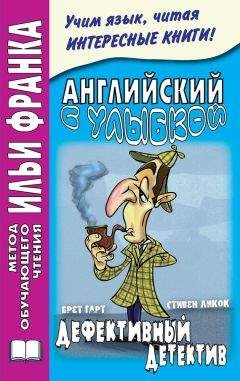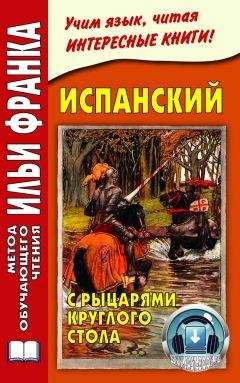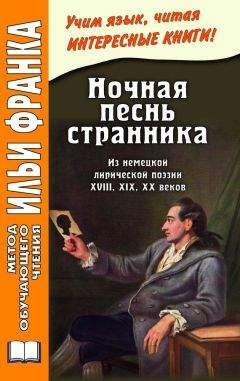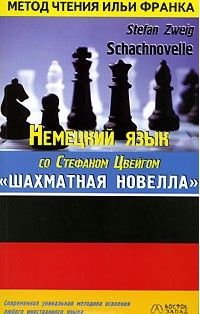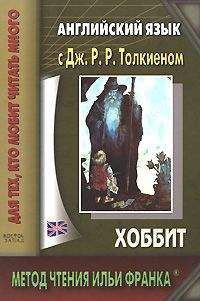Ознакомительная версия.
The two were destined to meet (этим двоим суждено было встретиться). Nearer and nearer they came (все ближе и ближе подъезжали они /друг к другу/). And then still nearer (а потом еще ближе). Then for one brief moment they met (и тут на один короткий миг они встретились; to meet). As they passed Gertrude raised her head and directed towards the young nobleman two eyes (когда они разъезжались, Гертруда устремила на молодого человека /взгляд/ двух глаз; to pass – проходить, проезжать; to direct – направлять; обращать, устремлять) so eye-like in their expression as to be absolutely circular (по своему выражению настолько похожих на глаза, что /они/ были абсолютно круглыми), while Lord Ronald directed towards the occupant of the dogcart a gaze (тогда как лорд Рональд устремил на пассажирку двуколки взор; occupant – захватчик; лицо, занимающее место в транспорте) so gaze-like that nothing but a gazelle, or a gas-pipe (настолько похожий на взор, что ничто, кроме как бобер или диффузор; gazelle – газель, gas-pipe – «газовая труба», газопровод /автор нарочно использует слова, похожие по звучанию, чтобы придать ситуации долю гротеска/), could have emulated its intensity (не могло сравниться с ним по выразительности; intensity – напряжение, напряженность; сила, интенсивность).
Ah, who, indeed? Ah, who, who? I wonder if any of my readers could guess that this was none other than Lord Ronald.
The two were destined to meet. Nearer and nearer they came. And then still nearer. Then for one brief moment they met. As they passed Gertrude raised her head and directed towards the young nobleman two eyes so eye-like in their expression as to be absolutely circular, while Lord Ronald directed towards the occupant of the dogcart a gaze so gaze-like that nothing but a gazelle, or a gas-pipe, could have emulated its intensity.
Was this the dawn of love (было ли это зарей любви)? Wait and see (подождите /немного/ и узнаете; to see – видеть; узнавать, выяснять). Do not spoil the story (не /будем/ портить рассказ).
Let us speak of Gertrude (давайте поговорим о Гертруде). Gertrude DeMongmorenci McFiggin had known neither father nor mother (Гертруда де Монморенси Мак-Фиггин не знала ни отца, ни матери). They had both died years before she was born (они оба умерли задолго: «за годы» до того, как она родилась; to bear – носить, нести; рождать, производить на свет). Of her mother she knew nothing, save that she was French, was extremely beautiful (о своей матери она не знала ничего, кроме того, что та была француженкой, была чрезвычайно красива; save that – за исключением того, что), and that all her ancestors and even her business acquaintances had perished in the Revolution (и что все ее предки и даже деловые знакомые погибли во время революции).
Yet Gertrude cherished the memory of her parents (однако Гертруда чтила память своих родителей; to cherish – высоко ценить, дорожить).
Was this the dawn of love? Wait and see. Do not spoil the story.
Let us speak of Gertrude. Gertrude DeMongmorenci McFiggin had known neither father nor mother. They had both died years before she was born. Of her mother she knew nothing, save that she was French, was extremely beautiful, and that all her ancestors and even her business acquaintances had perished in the Revolution.
Yet Gertrude cherished the memory of her parents.
On her breast the girl wore a locket in which was enshrined a miniature of her mother (на груди девушка носила медальон, в котором хранился миниатюрный /портрет/ матери; to enshrine – помещать в ковчег, раку; бережно хранить), while down her neck inside at the back hung a daguerreotype of her father (тогда как на шее со стороны спины висел дагерротип ее отца; to hang). She carried a portrait of her grandmother up her sleeve (портрет бабушки она носила на рукаве) and had pictures of her cousins tucked inside her boot (а изображения двоюродных братьев и сестер были засунуты в башмаки; picture – рисунок, картина; изображение), while beneath her – but enough, quite enough (тогда как под нею… но достаточно, вполне достаточно).
Of her father Gertrude knew even less (о своем отце Гертруда знала даже еще меньше). That he was a high-born English gentleman (он был английским джентльменом знатного происхождения) who had lived as a wanderer in many lands (который путешествовал и жил во многих странах; wanderer – странник, скиталец; land – земля, суша; страна, государство), this was all she knew (вот все, что она знала).
On her breast the girl wore a locket in which was enshrined a miniature of her mother, while down her neck inside at the back hung a daguerreotype of her father. She carried a portrait of her grandmother up her sleeve and had pictures of her cousins tucked inside her boot, while beneath her – but enough, quite enough.
Of her father Gertrude knew even less. That he was a high-born English gentleman who had lived as a wanderer in many lands, this was all she knew.
His only legacy to Gertrude had been a Russian grammar (единственными /вещами, которые/ он /оставил/ Гертруде в наследство, были грамматика русского языка), a Roumanian phrase-book, a theodolite, and a work on mining engineering (румынский разговорник, теодолит и трактат по горному делу; phrase-book – фразеологический словарь; разговорник /для путешественников/; work – работа, занятие; труд, сочинение /научного или художественного характера/).
From her earliest infancy Gertrude had been brought up by her aunt (с самого раннего младенчества Гертруду воспитывала тетя; to bring up – воспитывать, растить). Her aunt had carefully instructed her in Christian principles (тетя старательно наставляла ее в основах христианства). She had also taught her Mohammedanism to make sure (она также учила ее магометанству, так, на всякий случай; to teach; to make sure – убедиться, удостовериться).
When Gertrude was seventeen her aunt had died of hydrophobia (когда Гертруде было семнадцать, тетя умерла от водобоязни).
The circumstances were mysterious (обстоятельства /смерти/ были загадочными).
His only legacy to Gertrude had been a Russian grammar, a Roumanian phrase-book, a theodolite, and a work on mining engineering.
From her earliest infancy Gertrude had been brought up by her aunt. Her aunt had carefully instructed her in Christian principles. She had also taught her Mohammedanism to make sure.
When Gertrude was seventeen her aunt had died of hydrophobia.
The circumstances were mysterious.
There had called upon her that day a strange bearded man in the costume of the Russians (в тот день к ней заходил странный человек с бородой в одежде, /какую носят/ русские; to call /up/on – заходить ненадолго). After he had left, Gertrude had found her aunt in a syncope (после того, как он ушел, Гертруда обнаружила свою тетку в уменьшенном /состоянии/; syncope – стяжение, сокращение слова /лингв./; обморок /мед./) from which she passed into an apostrophe and never recovered (из которого она перешла в риторическое, /а от того так/ никогда и не оправилась; apostrophe – апострофа, риторическое обращение).
To avoid scandal it was called hydrophobia (чтобы избежать кривотолков, /причиной смерти/ объявили водобоязнь; scandal – позорный факт, постыдное происшествие; сплетни, злословие; to call – кричать, звать; объявлять). Gertrude was thus thrown upon the world (таким образом, Гертруда осталась одна на всем белом свете: «была брошена на мир»; to throw). What to do (что делать)? That was the problem that confronted her (вот вопрос, который встал перед нею).
It was while musing one day upon her fate that Gertrude’s eye was struck with an advertisement (однажды, когда Гертруда размышляла над своей /горькой/ долей, ей на глаза попалось объявление; fate – судьба, рок; участь, удел; to strike – наносить удар, бить; неожиданно найти, наткнуться на /что-л./).
There had called upon her that day a strange bearded man in the costume of the Russians. After he had left, Gertrude had found her aunt in a syncope from which she passed into an apostrophe and never recovered.
To avoid scandal it was called hydrophobia. Gertrude was thus thrown upon the world. What to do? That was the problem that confronted her.
It was while musing one day upon her fate that Gertrude’s eye was struck with an advertisement.
“Wanted a governess; must possess a knowledge of French, Italian, Russian, and Roumanian (требуется гувернантка; должна обладать знаниями французского, итальянского, русского и румынского /языков/), Music, and Mining Engineering (музыки и горного дела; mine – рудник; шахта). Salary 1 pound, 4 shillings and 4 pence halfpenny per annum (жалованье – один фунт, четыре шиллинга и четыре с половиной пенса в год; halfpenny – полпенса; per annum /лат./ – ежегодно). Apply between half-past eleven and twenty-five minutes to twelve (обращаться с половины двенадцатого до без двадцати пяти двенадцать; between – между) at No. 41 A Decimal Six, Belgravia Terrace (в номер сорок один и шесть десятых, Бельгрейвия-Террас; decimal – десятичная дробь; Belgravia – Бельгрейвия /фешенебельные кварталы в лондонском Вест-Энде/). The Countess of Nosh (/спросить/ графиню Нош).”
Gertrude was a girl of great natural quickness of apprehension (Гертруда была девушкой, от природы удивительно быстро соображавшей; great – большой, огромный; замечательный, удивительный; quick of apprehension – быстро соображающий), and she had not pondered over this announcement more than half an hour (и она раздумывала над этим объявлением не более получаса) before she was struck with the extraordinary coincidence (прежде чем ее поразило необычайное совпадение; to strike – ударять, бить; поражать) between the list of items desired and the things that she herself knew (между списком требуемых умений и тем: «и теми вещами», что она сама знала; to desire – желать, испытывать сильное желание; требовать; item – пункт /в списке/).
“Wanted a governess; must possess a knowledge of French, Italian, Russian, and Roumanian, Music, and Mining Engineering.
Salary 1 pound, 4 shillings and 4 pence halfpenny per annum. Apply between half-past eleven and twenty-five minutes to twelve at No. 41 A Decimal Six, Belgravia Terrace. The Countess of Nosh.”
Ознакомительная версия.
